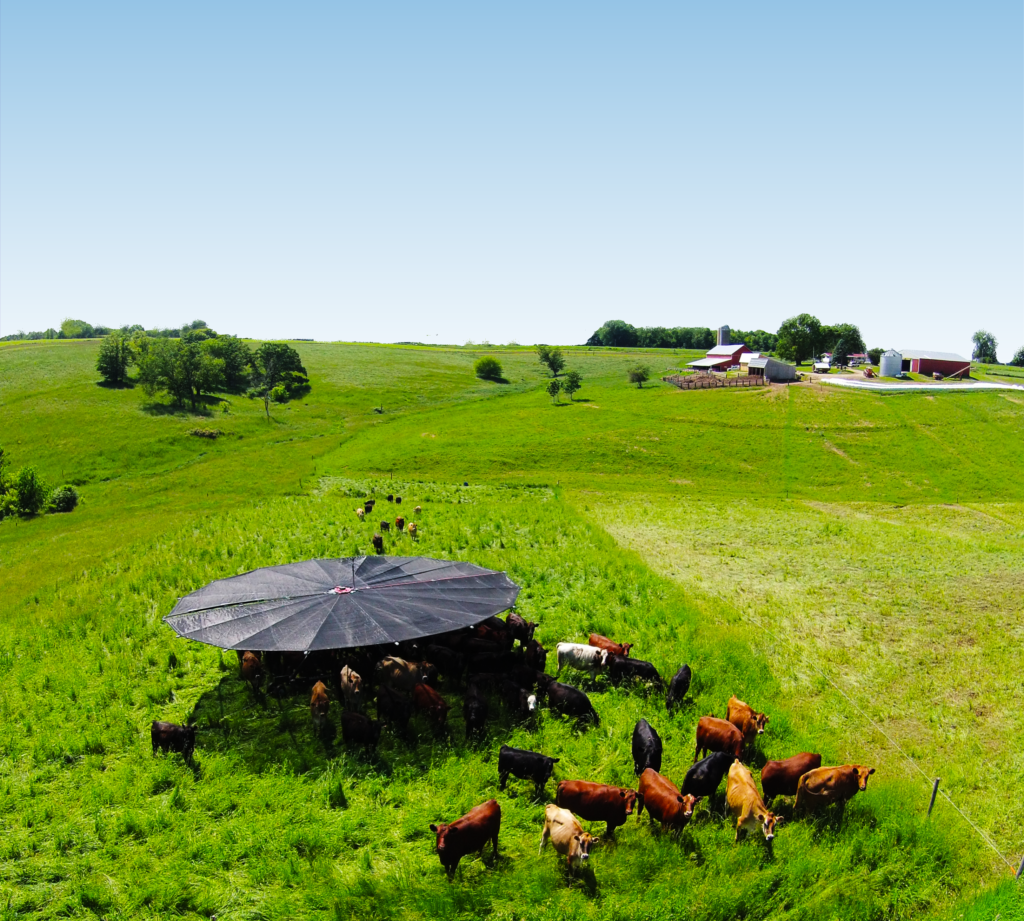 Dr. Paul Dettloff on protecting your livestock from the sun.
Dr. Paul Dettloff on protecting your livestock from the sun.
 From conception to maturity, your cattle need protection from the hot summer sun.
From conception to maturity, your cattle need protection from the hot summer sun.
“Anytime the air temperature reaches 85 degrees an animal will enter some heat stress,” notes Organic Valley staff veterinarian Dr. Paul Dettloff, considered one of the top holistic veterinarians in the country.
While black-hided animals are affected more quickly than white ones, high humidity combined with high temperatures can mean heat stress for animals of all colors. The result is decreased feed intake, reduced productivity, and profit losses.
Heat also plays a role in conception rates and fertility. After 35 years of practice, Dettloff knows when a cow bred in July is open in September, it’s probably linked to extreme temperatures. “You go back to that day in July and discover it was 94 degrees that day,” explains Dettloff. “With that high temperature, first service conception just falls off.”
Signs and solutions
Cattle don’t sweat like we do, so panting is a clear sign of stress.
“Once they start open mouth breathing and panting, you can bet they aren’t going to milk very good that day,” explains Dettloff, who encourages graziers of both dairy and beef cattle to provide shade for the health of their animals and to prevent production losses.
For those practicing rotational grazing, portable shade, such a Shade Haven mobile shade system, is critical for success. “Permanent shade in one spot in the pasture doesn’t work,” says Dettloff. “Movable shade is made for intensive rotational grazing.”
About Dr. Paul
Dr. Paul Dettloff is a consultant on sustainable agriculture, staff veterinarian for Organic Valley Coop in Wisconsin and Owner of Dr. Paul’s Lab, LLC. He has trained farmers across the U.S. on how to use natural products and is a frequent speaker at organic/sustainable conferences in the U.S. and Canada. Dr. Dettloff has authored “Alternative treatments for Ruminants” and the recently published “Musings of an old country vet”. Both are available at Dr. Paul’s Lab.